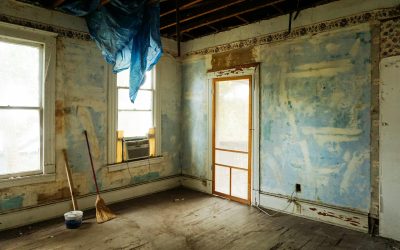A bidding war happens when several buyers compete to purchase the same property. Each buyer makes an offer, often above the asking price. This usually causes the final sale price to increase. For this to happen, the selling house must be highly appealing. It also helps if the listing price is set just right.
When a bidding war starts, sellers can earn much more than the original asking price. This can mean tens of thousands of dollars extra at closing. It’s a powerful strategy to get top dollar, especially in a competitive market. However, not every listing triggers this response. The outcome depends on timing, presentation, and price.
To spark a bidding war, sellers must prepare strategically. Start by making your property stand out in photos and descriptions. Set a price that encourages buyer interest without undervaluing your home. Work with a real estate expert to evaluate the market and create the right listing plan. The more buyers you attract, the more likely they are to compete.
A well-executed listing can generate urgency and excitement. This creates a scenario where buyers feel motivated to offer quickly and offer high. Being prepared can make all the difference when selling your property.

8 Expert Tips to Set Off a Bidding War
Selling a home in a competitive market takes more than just putting up a “For Sale” sign. If your goal is to spark a bidding war, you’ll need a smart game plan and a few insider strategies. Here’s how you can generate excitement, attract more offers, and potentially sell your home above asking price, step by step.
1. Choose the Right Real Estate Agent
Trying to sell a home without an expert on your side is like going into a game without a coach. A professional real estate agent helps you price your home properly, market it effectively, and manage every detail of the process. They know what works in your area and what buyers expect. Agents also bring connections, strategies, and industry knowledge that most sellers don’t have. They can give advice based on local market trends, current buyer behavior, and sales data.
Key benefits of hiring a skilled agent:
- Understands market conditions and pricing strategies
- Helps prepare and stage your home effectively
- Markets the property through the right channels
- Manages paperwork and legal details efficiently
- Negotiates on your behalf to maximize your return
2. Fix Up Your Home Before Listing
Buyers are drawn to homes that feel move-in ready. Even minor issues like chipped paint or loose doorknobs can leave a bad impression. The better your home looks, the more offers you’re likely to get. Spending a little money on repairs and improvements now can mean a much bigger payout later. Buyers don’t want to worry about fixing problems; they want a place that’s ready to enjoy.
Easy pre-listing improvements to consider:
- Repair cracks, leaks, and broken fixtures
- Update light switches and cabinet hardware
- Repaint walls in neutral colors
- Replace worn carpets or polish hardwood floors
- Improve curb appeal with landscaping and paint touch-ups
3. Stage and Photograph Your Home Like a Pro
First impressions happen online. Your home’s listing photos will likely be the first thing potential buyers see, and they can either spark curiosity or push people away. Professional staging makes your space feel open, welcoming, and desirable. Good photography captures that vibe and helps your listing stand out.
Tips for staging and photography:
- Hire a professional home stager if possible
- Remove clutter and depersonalize each room
- Use soft lighting and neutral colors
- Take high-resolution photos from multiple angles
- Highlight special features like fireplaces, patios, or large windows
4. Price It Just Below Market Value
This may sound strange, but pricing your home a little below what it’s worth can increase the final sale price. Why? Because it grabs attention and encourages multiple buyers to make offers. Instead of trying to squeeze out every dollar upfront, the goal is to create competition. A bidding war can drive the price higher than you’d get by listing at full value.
How to do this effectively:
- Have your agent pull recent comparable sales
- Evaluate your home’s true market value
- Set a competitive listing price
- Monitor interest and prepare for multiple showings quickly
- Be ready to adjust if the response isn’t strong after the first week
5. Create a Strong Marketing Plan
A successful home sale depends on visibility. That means your home needs to be marketed in all the right places. A basic listing won’t cut it if you’re trying to ignite a bidding war. Your agent should have a well-rounded plan to promote the property across multiple channels, both online and offline.
Marketing tactics that attract buyers:
- Post listings on major home search sites
- Use social media advertising and targeted promotions
- Send email blasts to local buyers and agents
- Create virtual tours or drone videos of your home
- Place attractive signage in high-traffic areas
6. Say Yes to All Showing Requests
Once your home is listed, showings are the gateway to offers. The more people who view your property, the better your chances of receiving multiple bids. Flexibility is critical. Even if the timing isn’t perfect, making your home available as often as possible will keep the momentum going.
Ways to maximize showings:
- Keep your home clean and ready at all times
- Leave the house during showings to give buyers privacy
- Allow for evening and weekend appointments
- Avoid turning down short-notice requests
- Consider a lockbox system to simplify agent access
7. Set a Deadline for Offers
Deadlines create urgency. By telling buyers when offers must be submitted, you motivate them to act fast. It also prevents drawn-out negotiations and gives you a structured timeline for reviewing bids. Buyers will often place stronger offers if they know others are competing for the same property within a short time window.
Tips for setting an offer deadline:
- Announce a deadline 3 to 5 days after listing
- Let your agent communicate this to all interested parties
- Stick to the deadline to maintain fairness and leverage
- Prepare to review all offers on the same day
- Use this moment to negotiate favorable terms
8. Confirm That All Buyers Are Pre-Approved
Not all offers are created equal. A buyer may offer a high price, but if they can’t secure financing, the deal can fall apart quickly. That’s why it’s essential to confirm their financial readiness. Requiring a mortgage pre-approval ensures that buyers are serious and capable of following through.
What to check with every offer:
- Ask for a current pre-approval letter from a reputable lender
- Confirm the buyer’s financing method
- Be wary of buyers without any documentation
- Have your agent review all buyer qualifications
- Prioritize offers that are both high and financially secure
Leverage the Power of Open Houses: Turn Interest into Offers
An open house is more than just a real estate tradition; it’s a powerful marketing tool that allows sellers to attract multiple potential buyers in a single event. Hosting an open house gives you a unique opportunity to showcase your home in its best light, generate buzz, and create a competitive atmosphere. The strategy behind it is simple: when buyers see others walking through the home and expressing interest, it naturally creates a sense of urgency. No one wants to miss out on a home that other people are eyeing.
This heightened competition often results in faster offers and sometimes even bidding wars. A well-executed open house can turn casual lookers into serious buyers, and serious buyers into motivated ones who are ready to put in strong offers.
How to Maximize Your Open House Impact
To make the most of your open house, timing and presentation are key. Here’s how to ensure it works to your advantage:
Host it right after your home hits the market
Schedule your open house within the first few days of listing your property. This helps capture attention when interest is at its peak and your listing is still fresh. Early momentum can create a sense of demand and boost attendance.
Promote it everywhere
Use every available channel to get the word out. Leverage social media platforms like Facebook and Instagram, real estate websites, email newsletters, community bulletin boards, and even local newspapers. The more people who know about your open house, the more foot traffic you’ll generate.
Prepare your home for first impressions
Presentation matters. Your home should be clean, decluttered, and staged to appeal to a wide audience. Natural lighting, neutral colors, and tasteful decor can make the space feel larger and more inviting. Don’t forget to address smells and minor repairs to avoid turning buyers off.
Offer take-home materials
Provide printed brochures or flyers with high-quality photos, key features, and your agent’s contact information. Include details like square footage, recent upgrades, and neighborhood highlights. These materials keep your home top of mind as buyers continue their search.
Follow up with attendees
Your real estate agent should reach out to everyone who attended the open house. This follow-up is crucial for gathering feedback, answering questions, and encouraging interested buyers to take the next step. A quick follow-up can nudge someone from “interested” to “ready to make an offer.”
An open house isn’t just about showing your home, it’s about creating the right environment to motivate buyers. When potential buyers feel the pressure of others being interested, they’re more likely to act quickly and competitively. Done right, an open house can be the turning point that brings in multiple offers and helps you sell faster and for a better price.
Conclusion
Selling your home doesn’t have to be a waiting game. With the right strategy, you can spark real buyer competition. From pricing your home just right to staging it like a pro and setting offer deadlines, every move matters. Each of the eight steps outlined above is designed to position your property as a hot commodity. Don’t just aim to sell, aim to sell for top dollar. Partner with a skilled agent, plan strategically, and stay responsive throughout the process. The result? A powerful bidding war that could drive your home’s price well above asking. In a fast-paced market, hesitation costs money, so start preparing today. Take action, follow the steps, and give buyers a reason to compete.
FAQs
How does pricing below market value help create a bidding war?
Pricing slightly low grabs buyer’s attention fast. More interest leads to multiple offers. Bidders then compete, raising the price naturally.
Why is home staging important before listing?
Staging shows your home’s best features. It makes rooms look larger and more inviting. Buyers picture themselves living there.
What kind of repairs should I make before selling?
Fix leaks, paint walls, and replace broken fixtures. Buyers want move-in-ready homes. Even small issues can turn them off.
How do deadlines increase urgency among buyers?
Deadlines shorten decision time. Buyers rush to act before missing out. This often results in faster, higher offers.
Is a pre-approval letter required for all offers?
Yes, it ensures the buyer can afford your home. Without it, offers may fall through. Always verify buyer financing strength.









